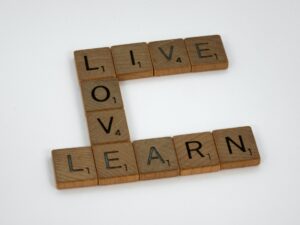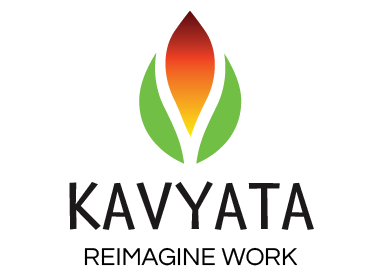
05 Oct How to Leverage Career Breaks for Professional and Personal Growth: A Proven Framework
The increasing prevalence of Career Breaks:
Have you noticed an increasing number of people taking a career break? Or maybe you too have gone on a break or are thinking about taking a break?
In my work as a career coach, since the beginning of this year, I’ve had numerous conversations with people figuring out career breaks. Sometimes, these have been forced breaks, due to downsizing, some due to burnout. What’s more, the number of people contemplating a break has increased manifold.
With the tightening of the job market, people are actively considering how to reinvent themselves, upskill, explore new alternatives, etc., by taking a break before any adverse situation befalls them.
This blog post will tell you how to understand when you need to take a break, how to avoid anxiety and confusion once you are already into a career break and how you can leverage your break for career growth and career transition using my proven Rest-Reflect-Reset model.
Recognizing when you may need a Career Break – What are the signals to watch out for
To ‘break’ or ‘not to break’ remains a big doubt in the minds of many. To help with thinking about this, I’m sharing a few pointers based on my experiences of coaching people on navigating career breaks.
Strong Signals:
-
- A feeling of burnout and breakdown of any kind – mental / emotional / physical (which might be leaving you unable to cope with the demands of work)
- An impending or forced redundancy due to restructuring
- A health crisis

If you identify with strong signals, then it’s time to take that break.
Weak Signals:
-
- A slight but growing health concern
- Being unable to get your mind off work even when you’re on holiday
- Feeling disconnected with most of the work you’re doing
- Feeling sad and disappointed that you haven’t really consciously chosen the kind of work you’ve done until now
If you’re beginning to notice some weak signals, it may point to the need for a break or a pause a few months down the line. You could also seek out coaching when you notice these weak signals, so that you can consciously upgrade your professional and personal growth before any sort of crisis befalls you.
Making Your Break Work – Once you have taken a break, how do you make it work and not get anxious about it
Understand that a break has a life of its own, and that may look different from what you envisaged it to be. It usually begins with a bang – you may feel free, rested, exhilarated at being able to enjoy things like travel and hobbies.
However, after you are some weeks into your break, you may start missing having a structure to your day; friends’ and well-wishers’ questions about ‘what are you doing’ begin to rile you, even planning enjoyable activities and distractions start feeling arduous!
You need to follow a proven framework which allows you to make the most of your break without feeling anxious or frittering it away with nothing to show for at the end of it. Read on to know about my proven model of Rest-Reflect-Reset for those on a career break.
Rest:
One of my clients started working with me two months into her planned break. Although the break was planned and something she was looking forward to, around that time, she found herself on shaky ground when it came to actually pursuing her break goals. She was losing confidence in herself, leaving her with little energy (mental and emotional) to figure out her next steps.
We began by expanding the circle of activities she would engage in, which in turn started replenishing her energy. This is the ‘rest’ phase of taking a break – rest and recovery from whatever previous experiences have depleted your energy. This is also central to starting to see yourself in a new light, allowing your unsurfaced aspirations to come out and treating them as valid enough to try to pursue in some form.

My client’s journey during this phase was transformative. Here’s how she approached the Rest phase:
- Engaging in New Activities: She intentionally broadened her horizons by participating in activities that she had neglected during her busy work life. This not only replenished her energy but also helped her reconnect with her passions and interests.
- Mental Detox: She practiced mindfulness and meditation, allowing her mind to declutter and find clarity amidst the chaos of her previous career.
- Seeking Solitude: Taking time for herself and indulging in solitude helped her recharge and gain a fresh perspective on her life and aspirations.
This phase served as the foundation for her journey toward personal and professional growth. It allowed her to step back, breathe, and rediscover her authentic self.
Reflect:
The ‘Reflect’ phase is where you delve into introspection and self-discovery. During this critical step, you gain clarity about your aspirations, strengths, skills, and resources, setting the stage for the transformation that lies ahead.
My client, during this phase, engaged in a series of activities that facilitated her self-reflection journey. Here are some key steps she took:
- Journaling: Writing down her thoughts and feelings helped her process her past experiences and identify recurring themes, passions, and areas of genuine interest.
- Mentorship and Coaching: Seeking guidance from experienced mentors and engaging with a career coach, like myself, allowed her to gain valuable insights into her strengths, skills, and untapped potential.
- Self-Assessment: Utilizing self-assessment tools and personality tests, she gained a deeper understanding of her values, preferences, and the kind of work that aligned with her true self. For instance, the FIRO-B (Fundamental Interpersonal Relations Orientation) enabled her to uncover her patterns of interpersonal behaviours and needs and learn how to shift that.
- Networking: Expanding her professional network allowed her to explore new industries, connect with like-minded individuals, and discover fresh perspectives on her career path.
By dedicating time and effort to reflection, my client began to see herself in a new light. Her unsurfaced aspirations gradually emerged, and she started to treat them as valid and worthy of pursuit. This self-awareness was a crucial stepping stone toward her personal and professional growth.
Reset:
The ‘Reset’ phase represents the culmination of your break journey. It’s where you take the insights gained during the Reflect phase and use them to craft a new narrative for your career. It’s about setting clear goals, making intentional choices, and redefining your path in alignment with your newfound clarity.

For my client, the Reset phase was both exciting and challenging. Here’s how she navigated this crucial stage:
- Goal Setting: She set specific, measurable, and achievable goals based on her reflections. These goals served as guideposts for her journey forward.
- Exploration: She actively sought opportunities in her areas of interest, even if they were outside her comfort zone. This openness to new experiences allowed her to test the waters and gain valuable insights.
- Learning and Upskilling: Recognizing the importance of staying relevant in an ever-changing job market, she invested in furthering her skills and knowledge in her chosen field.
- Networking and Building a Personal Brand: She continued to expand her network, showcasing her expertise and passion through an online presence and engagement in relevant communities.
- Adaptability: She remained flexible and adaptive, understanding that the path forward might require adjustments along the way.
Through a combination of self-discovery and deliberate action, my client created a new narrative for herself. She transitioned into a portfolio career that aligned with her aspirations, strengths, and interests. This phase of the journey was a testament to her commitment to personal and professional growth.
Conclusion:
The Rest-Reflect-Reset model provides a structured framework for those on a career break to turn it into a transformative experience. By investing time in reflection and taking intentional steps toward resetting your path, you can emerge from a career break with renewed purpose and a clear direction for your future.
The power of a career break lies not just in the pause it provides but in how you navigate it. Recognizing the signs that you need a break, making the most of your break without succumbing to anxiety, and following a structured model like Rest, Reflect, Reset can transform your break into a pivotal point for personal and professional growth.
If you’re currently on a career break or contemplating one and want to explore how coaching can accelerate your personal and professional growth during this transformative phase, don’t hesitate to reach out to me. Let’s embark on this journey together and unlock the full potential of your career break. Contact me today, and let’s start shaping your brighter future.

Kavita, an alumna of IIM Ahmedabad, brings 20 years of experience in Experiential Learning, Coaching, Personal Growth & Change. Her forte is Career Transition Coaching and Leadership Development for mid-senior individuals, helping them find success and fulfilment at work . She also teaches Career & Self Development courses at leading management institutes including IIM Kozhikode, IIM Udaipur, IIM Indore and at the IITs.

